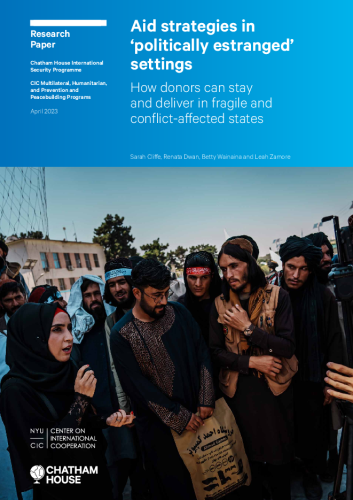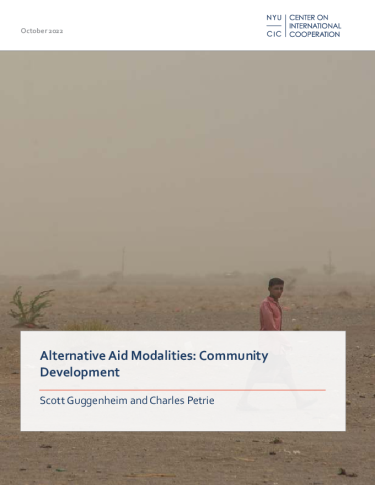The Swedish Ministry of Foreign Affairs and Sweden’s Presidency of the Council of the European Union in partnership with the New York University Center on International Cooperation, are pleased to invite you to a panel discussion on – How to support the Syrian people while minimizing the risk of aid diversion, a side event of the annual Brussels Conference VII on Supporting the Future of Syria and the Region.
Tuesday, June 13, 2023
8:30 am – 10:00 am (ET) / 14:30 – 16:00 (CET)
The session takes stock of in the findings of a recent Swedish MFA commissioned study on aid diversion by New York University, Center on International Cooperation, and the Royal Institute of International Affairs, Chatham House, as well as a Syria Legal Development Programme (SLDP) mapping of the top 100 private and public-private Syrian suppliers to various United Nations agencies in 2019-2020.
It will provide an opportunity to reflect on practical approaches for undertaking due diligence, understanding the political economy, the role of various actors such as civil society, community networks, and the institutional mechanisms such as risk management units and others that can produce real time intelligence and undertake effective monitoring. The aim is to find practical policy recommendations.
Speakers
Opening Remarks
- Ambassador Per Örnéus, Sweden’s Special Envoy for the Syria Crisis
Keynote Speakers
- Eyad Hamid, Senior Researcher, Syrian Legal Development Program
- Betty Wainaina, Associate Director, Center on International Cooperation, NYU
Panel Discussion
- Najat Rochdi, UN Deputy Special Envoy for Syria
- Carl Hallergaard, Deputy Managing Director, MENA department, EEAS
- Mutasem Syoufi, Director, The Day After
- Sarah Cliffe, Executive Director, Center on International Cooperation, NYU (moderator)
Follow the conversation: #SyriaConf2023#EU2023SE

